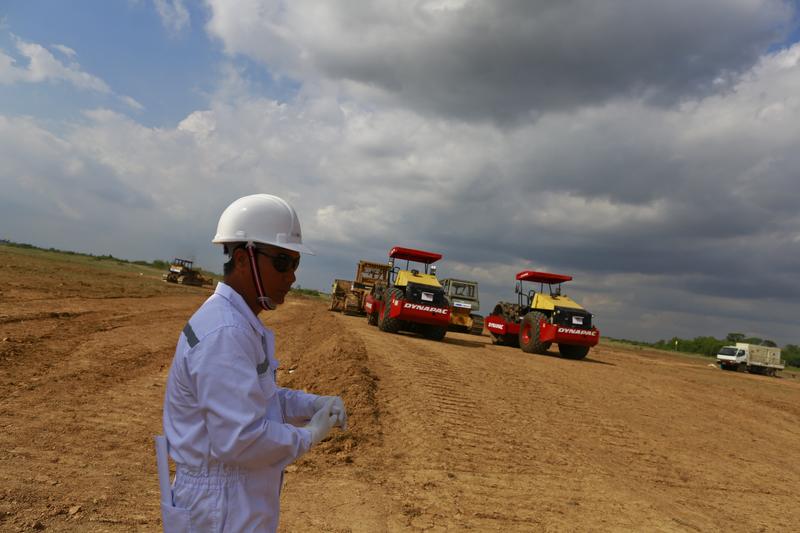A Burmese court has found 33 farmers living next to a Special Economic Zone guilty of criminal trespass, a ruling seen by activists as a blow to land rights in a country with a rising demand for property for industrial use.
The farmers said the government did not follow the legal process when it tried to acquire their land adjacent to the Thilawa SEZ in 1996, and that they continued to farm the land and pay taxes on it.
They were charged with criminal trespass in 2014.
Lawyers for the farmers argued that the charges had no basis, as the government did not begin the formal legal process to acquire the land until 2015, a year after the trespassing complaint was made.
“Today’s ruling represents a blow to the land rights of farmers across Myanmar,” said Ben Hardman, a deputy legal director at advocacy group EarthRights International.
The farmers have 60 days to file an appeal, and are considering whether to do so, he said.
About 70 percent of Burma’s population lives in rural areas and depends on agriculture for a living.
Few farmers in Burma have formal documents for their land. But even titles do not provide adequate protection, and people are frequently forced off of their farms without proper legal process or compensation, activists say.
Disputes over land have increased significantly since the easing of political and economic restrictions began in 2011. The reforms led to a rush of foreign investments and greater demand for land for industrial use.
Government officials say projects including mining, hydropower and large-scale agriculture are essential for development in one of the world’s poorest countries.
The Thilawa SEZ, in the country’s south, is the first SEZ project developed by the Burmese government, and covers about 600 hectares.
[related]
The government recently introduced a national land-use policy to give farmers more rights, and has adopted dispute resolution mechanisms.
But transactions are often characterised by a lack of consultation and consent from affected communities, inadequate compensation, the absence of a resettlement policy and a lack of judicial remedies, activists say.
Alongside, arrests and prosecution of protesters and land rights activists have risen.
The reforms “offer little or no protections to tenant farmers and do not protect customary land use,” Hardman said.
“Worryingly, a series of proposed amendments actually increases both the scope of criminal offences and the length of sentences that farmers could be given,” he told the Thomson Reuters Foundation.



